2021 Achievement Award Recipients
The following awards are administered by the Office of the Provost and Vice-President (Academic) and recognize outstanding teaching achievements:
Teaching Achievement Award
Professional Achievement Award
Contract Instructor Teaching Award
Contract Instructor Teaching Innovation Grant
Recipients of the Research Achievement Award are listed on the Office of the Vice-President (Research and International) website.
Teaching Achievement Award
The Teaching Achievement Awards are intended to enhance the teaching of their recipients and the quality of instruction at Carleton.
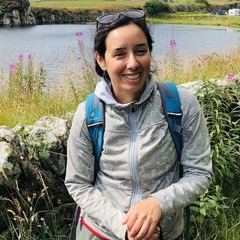 Onita Basu
Onita Basu
Associate Professor
Civil and Environmental Engineering, Faculty of Engineering and Design
Developing Critical Analysis Skills and Compassion Through a WASH Based Approach to Capstone Design Projects in Engineering
Development of engineers with a global mindset will enable Carleton trained engineering students to share their skills and knowledge with compassion and caring to help shape a brighter future for our planet. This program engages students to support work in developing nations and marginalized communities to foster cross cultural awareness while enhancing their applied skill sets. Students will participate in real projects in water and wastewater that will have tangible outcomes based on genuine needs propelling them towards excellent global citizenship. Currently, Dr. Basu has grassroots projects in Ecuador and Tanzania.
 Véronic Bézaire
Véronic Bézaire
Instructor III
Chemistry, Faculty of Science
Program-level ePortfolios in Chemistry: From Learning Outcome Assessment to Pedagogy
This project integrates reflective pedagogy with program assessment of learning outcomes using Carleton’s cuPortfolio. In identified checkpoint courses, students will perform cuPortfolio assignments designed to reflect holistically on one’s learning and achievement of program learning outcomes. This annual reflective exercise will increase student awareness of skills and competencies and help develop a professional identity during degree programs. cuPortfolios will facilitate assessment of program learning outcomes and support program improvement efforts.
Augustine Park
Associate Professor
Sociology and Anthropology, Faculty of Arts and Social Sciences
Exploring the Experiences of Black, Indigenous and Racialized Graduate Students as Teachers and Learners
This project explores the experiences of graduate students who identify as Black, Indigenous or people of colour (BIPOC) within the context of ongoing racialized disparity in Canadian universities. Examining their dual roles as both learners and teachers, the project will compare the experiences of students in social sciences and humanities with the experiences of students in STEM disciplines. Privileging the perspective of BIPOC graduate students, the project will generate ideas to improve their experiences.
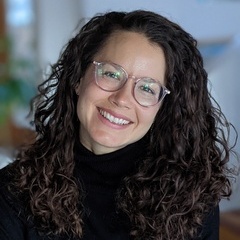 Marylynn Steckley
Marylynn Steckley
Instructor III
Arthur Kroeger College of Public Affairs, Faculty of Public Affairs
Global Engagement Starts at Home
Experiential learning is a priority across universities in Canada, and many programs aim to provide international options. But overseas internships are pricey, out of reach for those with ability challenges, associated with high carbon footprints, and often benefit students more than hosts. Carleton’s Strategic plan advocates international opportunities, community-engagement, and environmental sustainability. My teaching is geared to improving international, experiential learning courses that are eco-friendly, and prioritize equity, diversity and inclusion.
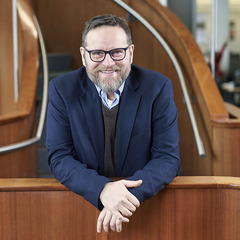 Andrew Webb
Andrew Webb
Assistant Professor
Sprott School of Business
Student-driven service learning at the Sprott Student Consulting Group
The aim of this teaching development project is to build on the success of the Sprott Student Consulting Group (SSCG) by designing and implementing a new student-led management team for the SSCG. This initiative, when completed, will provide high impact management learning opportunities by giving more control over learning directly to students and will effectively create what will be, to my knowledge, a unique and cutting edge student-driven service-learning program.
Professional Achievement Award
The Professional Achievement Awards recognize outstanding professional achievements at Carleton University for professional librarians and instructors.
 Jennifer Browning
Jennifer Browning
Discovery Systems Librarian
Library Technology Services, MacOdrum Library
Jennifer governs the staff library services platform and end-user discovery through Omni. She is Carleton’s Implementation Lead in the OCUL Collaborative Futures consortium and has played a key role in the library’s migration to Omni. Her research pursuits include continuous learning for staff and the influence of library technologies on policy and workplace culture. Jennifer returned to Carleton in 2018 after working at the University of Toronto Libraries as a Metadata Librarian for Electronic Resources.
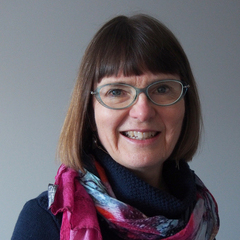 Deborah Conners
Deborah Conners
Instructor I
Sociology and Anthropology, Faculty of Arts and Social Sciences
Bringing my community development expertise to Carleton has led to a challenging and exciting first four years of teaching using experiential and community-engaged methodologies. I have been delighted to find a valued place for this expertise in leading-edge academic pedagogies. The translation of this knowledge to the university setting has engendered a deep learning process as we develop the templates for this translation and create powerful opportunities for student learning.
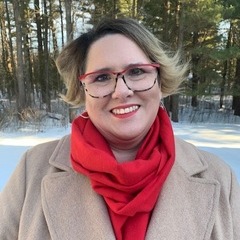 Patti Harper
Patti Harper
Librarian IV
Department Head, Research Support Services, MacOdrum Library
I began my career at Carleton, 22 years ago, as an archivist in the Corporate Archives with a brief foray as the FIPPA Assistant. I joined the library in 2008 as the Head of Archives and Research Collections, before becoming Head of Research Support Services in 2017. Collaboration has been the key to many of my professional milestones. I have had the opportunity to work on several rewarding projects and events at Carleton; the 75th Anniversary book, beginning the Asian Ugandan Archives, historical walking tours, Heritage Passages a Virtual Museum of Canada project and recently the completion of the Book Arts Lab in the Library. This lab will position the library in academic experiential opportunities in all areas of book arts. This project allowed me to work with several faculty, students, library staff and community organizations to ensure the lab is equipped for unique book arts opportunities on campus.
 Brenda Morris
Brenda Morris
Instructor III
Social Work, Faculty of Public Affairs
Supporting students in the virtual classroom to develop social work practice skills, competencies and critical thinking relating to interpersonal practice, Brenda aims to build pedagogical tools grounded in social work’s commitment to social justice, diversity, equity, and inclusion. These learning experiences seek to extend students’ previously held understanding of social work with individuals and families in light of new ideas, concepts, knowledge, theories, demonstrations and ways of engaging practice in the online environment.
 Mike Murphy
Mike Murphy
Instructor II
Linguistics and Language Studies, Faculty of Arts and Social Sciences
Mike has taught in the English as a Second Language-Academic (ESLA) program since 2017. He is passionate about helping international students gain the language proficiency and academic study skills they need to excel in their degree programs and to enrich the Carleton community with their unique and diverse points of view. He is collaborating with colleagues in ESLA, Applied Linguistics, and Research Computing Services to build software that will help teachers select course readings and identify high-priority study words based on ongoing research into ESLA student vocabulary knowledge.
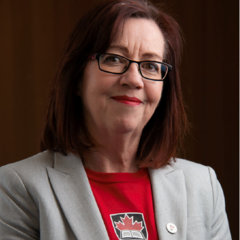 Danette Nearing-Guibord
Danette Nearing-Guibord
Instructor III
Criminology and Criminal Justice, Faculty of Public Affairs
I have been the Field Placement Co-ordinator and Instructor for the Criminology and Criminal Justice Program for the past 13 years. My teaching is guided in the core values of care, respect, and student engagement. Through their field placement and the seminar class, students learn to apply theory to practice. My classroom is engaging, where students share their placement experiences, learn from experts in the field, and discuss current issues in criminal justice. This course has been truly transformational for many students and I feel a deep satisfaction in being able to provide them with learning opportunities that will guide them in their career choices.
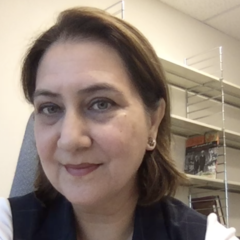 Shazia Sadaf
Shazia Sadaf
Instructor II
Interdisciplinary Studies, Faculty of Arts and Social Sciences
My teaching is broadly driven by the belief that the study of world literatures is an effective tool for bridging the global divide between cultures and ideologies and can be a catalyst for positive change. By extension, one of my goals as an instructor of human rights is to expose the dangers of ethnocentric ideas and promote the importance of narrative texts from regions with a colonial history that are significant players in the future of a collective global imaginary.
Contract Instructor Teaching Award
The Contract Instructor Teaching Awards recognize teaching excellence by Contract Instructors.
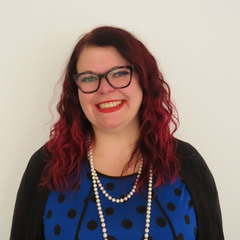 Brittney Bos
Brittney Bos
Contract Instructor
Pauline Jewett Institute of Women’s and Gender Studies, Faculty of Arts and Social Sciences
I always remind learners: I’m formally listed as your instructor, but I’m actually your feminist educator who is here to share knowledge and resources, and facilitate discussions centred on your experiences by providing support along your learning journey. I intertwine numerous related theories and methodologies into the classroom to break power structures. Through innovative assignments and experiential class discussions, I encourage engagement with “real world” scenarios and present materials in accessible language for all learners.
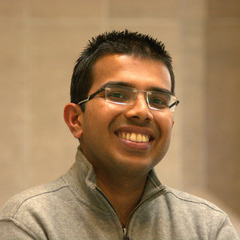 Jay Ramasubramanyam
Jay Ramasubramanyam
Contract Instructor
Law and Legal Studies, Faculty of Public Affairs
As an instructor I strive to integrate literature on colonial legacies and colonial traumas in my pedagogical interventions. This has taken the form of designing content that challenges tradition and creates solidarities across marginalized communities, which are both necessary and stimulating. This enables me to effectively introduce social issues and issues of racial justice to reconstitute knowledge sharing and make steps towards correcting the unequal power dynamics that impact everyday academic interactions.
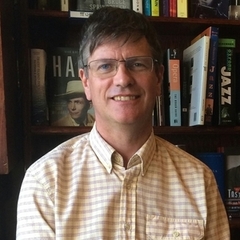 Andrew Robinson
Andrew Robinson
Contract Instructor
Physics, Faculty of Science
I am interested in science pedagogy, and the historical development of science, and maintain a very interdisciplinary approach to my teaching. I try to reach out to the class by showing them where physics is useful to them in everyday life, and in their particular fields of study and interest. I also try to support students, as they transition from high school, to the university learning environment.
 Bruce Wallace
Bruce Wallace
Contract Instructor
Systems and Computing Engineering, Faculty of Engineering and Design
As Executive Director of the AGEWELL SAM3 Hub, I research applications of sensors, signal processing and artificial intelligence to create solutions that enable independence for aging adults. Allowing them to age in place and have active, socially engaged lives. As a contract instructor, I enjoy supporting the success of students as they learn new and sometimes difficult concepts that provide them with the tools to move into careers and also build solutions that help others.
Contract Instructor Teaching Innovation Grant
The purpose of the CITI grant is to provide support to a Contract Instructor for investigating student learning and alternative approaches to teaching and assessing student learning at the individual, departmental, Faculty, or institutional levels. The overall aims are to foster deep student learning at Carleton University and promote curiosity, reflection, and exploration in the areas of teaching and learning.
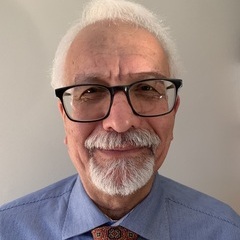 Ahmad Hemami
Ahmad Hemami
Contract Instructor
Mechanical and Aerospace Engineering, Faculty of Engineering and Design
Students minds can easily glide away during a lecture. This project intends to enhance student learning by making him/her more attentive to the subject matter and less distracted. The idea is to replace lectures by computer-based projects, through which the student grasps the material by analysis or answering a set of questions, carefully designed for this purpose. Each project leads a student, step by step, to the expected facts, formula or procedure to be learnt.
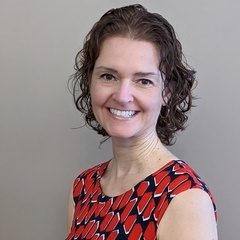 Kathleen Moss, Ph.D
Kathleen Moss, Ph.D
Contract Instructor
Sociology and Anthropology, Faculty of Arts and Social Sciences
The grant will be used to redesign SOCI 3300 to incorporate innovative online learning modules and experiential learning through course content, student assessments, and learning outcomes. What makes this course innovative is the course design in which digital tools such as the FUSION curriculum will be integrated which reinforce skill development, the applicability of our experiential learning project, and facilitates deeper learning. The FUSION curriculum offers sociology students the opportunity to increase their knowledge in effective learning styles, and to assist with creating a career portfolio and teaching philosophy, which are all necessary and relevant qualities for pre B.Ed. students.